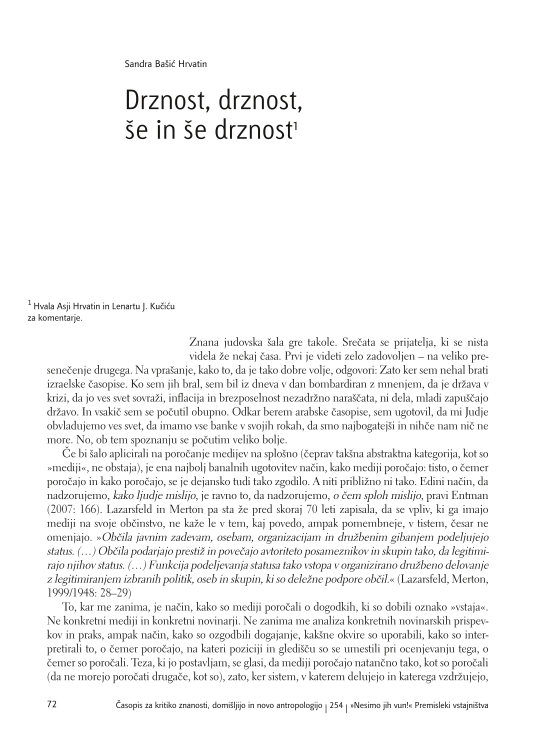The author analyzes the media reporting on how the events were tangled into the whole story, framed and interpreted, and on the positions and points of view taken when reporting the events. The hypothesis is that the media report in the way they do because the system within which they operate, and which they sustain, allows only precisely determined framings of the story and these invariably support and legitimize the existing social order. In the second part, the author tries to explain why the “uprisers” stayed on the level of “political revolution” rather than attempting the economic revolution as well (both notions are borrowed from Rosa Luxemburg). Why the majority of the uprising groups sought to attract media attention and acquiesced to their “flattering” while not demanding the radical reform of the media (space) as well? Can any uprising, any rebellion movement or a revolution succeed without rebellious media? The answer is no. Moreover, it is possible to say that the outcome of the future political struggle will depend on whether the states will choose to serve the interests of citizens or of the capital. Equally importantly, it is necessary to distinguish between capitalism and democracy in this struggle. The key question we face is very simple: should we strive to rescue capitalism or democracy? Rescuing both is impossible.




